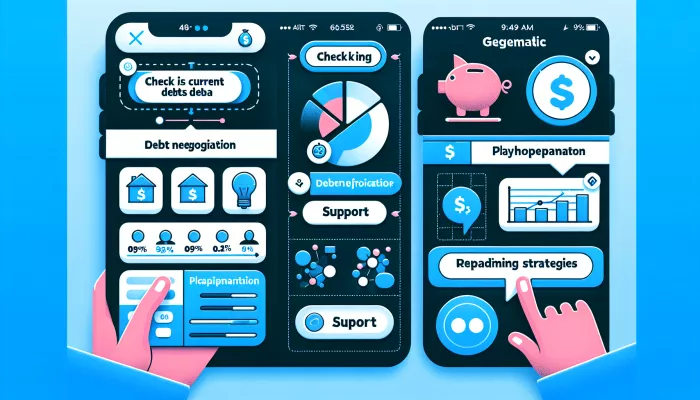
Identifying the Type of Debt: First, it's essential to distinguish between payroll-deductible, revolving, and installment debt. Each has different interest rates, directly influencing how to renegotiate debt.
Analysis of the Original Contract: It is essential to review the original documents to understand all applicable clauses and fees. This may reveal abusive terms or opportunities for argument.
Assessment of your Payment Capacity: Before any negotiation, it is crucial to understand your available budget.
List your monthly income and expenses to know exactly how much you can commit to paying in renegotiations.

Importance of Detailed Planning: Build a realistic payment plan and negotiation schedule.
Keep deadlines in mind to avoid incurring new debt during the process.
Communication with Creditors: Establish an open and honest dialogue. Explain your financial situation and demonstrate your willingness to pay, proposing alternatives that fit within your current financial capacity.
Consider Professional Assistance: If the burden of debt becomes excessive, consider hiring a financial advisor or a specialized lawyer.
They can help you find the best solutions and defend your rights as a consumer.
By following these guidelines, you'll be better prepared to understand and address your debts, moving toward a more favorable settlement and financial recovery.
For more information on financial planning and management, visit websites like the Consumer Financial Protection Bureau or use personal financial management apps like Mint and You Need a Budget (YNAB).
When you are in debt, take the right steps to negotiate with creditors can be the difference between financial hardship and relief.
The key is to understand how creditors operate and apply negotiation techniques that can work to your advantage.
Before engaging in any conversation with your creditors, it is essential to have a clear vision of your finances.
Calculate your total income and monthly expenses to know exactly how much you can commit to paying without compromising your basic needs.
Don't wait for creditors to come to you. Take the initiative and show your willingness to pay what is owed. This attitude can demonstrate good faith and potentially lead to more favorable agreements.
In other words, in your negotiation, be honest about what you can afford. Make a realistic proposal that fits your budget and be prepared to explain how you arrived at that number.
However, sometimes creditors may not agree with your initial proposal, but every adjustment in your favor is already an advantage. Celebrate small victories such as a reduced interest rate or an extended term.
Likewise, record all conversations and agreements made with creditors. Save emails and letters, and make detailed notes of the commitments made by both parties during negotiations.
However, if you feel overwhelmed, consider hiring a financial advisor or debt negotiator.
Additionally, these professionals can offer an outside, technically informed perspective.
In this sense, remember that the ultimate goal is to find a solution that allows you to pay off your debts sustainably, without compromising your financial well-being.
As well as, Use these strategies to negotiate better terms with your creditors and find a viable path to your financial health.
In other words, after renegotiating your debts, it is essential to establish a monthly budget that takes into account your new financial commitments.
However, this budget must be realistic and adaptable to your routine, ensuring that you can continue without taking on new debts.
Furthermore, variable expenses, such as eating out and entertainment, should be closely monitored. One helpful technique is to establish a spending limit weekly for these categories.
This helps avoid impulsive spending and keeps costs in line with your budget.
Additionally, using apps and websites can be a great ally in managing your finances. Tools like Mint, You Need a Budget (YNAB), and GuiaBolso help you track your spending and plan for future savings.
However, give preference to paying debts with higher interest ratesThis will decrease interest accrual and reduce the overall cost of debt in the long run.
For example, invest in your financial education. Books, blogs, podcasts, and courses can provide valuable information on how to better manage your money and avoid future debt.
However, use credit wisely and in a planned manner. Before taking on new debt, evaluate your long-term needs and repayment capacity.
In other words, periodic reviews of your planning and budget are essential to keeping your finances on track. This allows you to adjust strategies and avoid unwanted surprises.
Useful links: